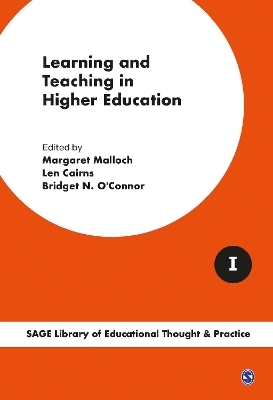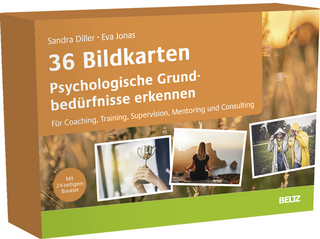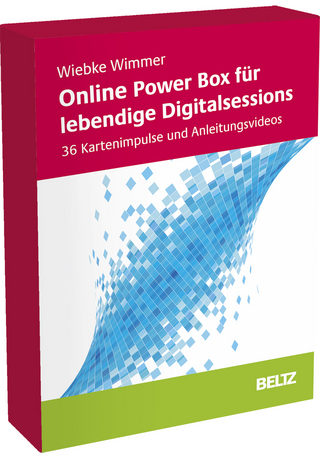
Learning and Teaching in Higher Education
SAGE Publications Ltd
978-1-4739-1287-8 (ISBN)
The central focus of this major work is on issues, challenges and changes in the field of teaching and learning in Higher Education, and particularly those which have developed over the past few decades. Since the 19th century there has been a constant debate over what universities and higher education should and could be, and with the purposes, costs and value to society coming to the fore of the discussion in most recent times.
While there is no doubt that the issues involved in movements and changes such as "globalization", "commercialisation", "massification", and "corporatization" - as they have been characterized over the last few decades - have significantly impacted Universities, there have also been profound effects of greater access of more diverse groups to Higher Education, increases in areas of study and their application, and in the impact of technology as never before. Across four thematic volumes, this major work examines a number of these effects and how they have led to issues and developments in the field.
Volume One: Curriculum Development in Higher Education
Volume Two: Approaches to Learning and Teaching in Higher Education
Volume Three: The Impact of Technology and Online Learning in Higher Education
Volume Four: Assessment and Evaluation in Higher Education
Margaret Malloch, PhD, FRSA, is an Honorary Professor in the Institute for Sustainable Industries and Liveable Cities, Victoria University, where she was Director of Research Training in Arts and Education. As Reader in Education at the University of East London, Margaret contributed to leadership of doctoral programs. She is a member of the VETNET Board of the European Educational Research Association, the International Journal for Research in Vocational Education and Training, and the Australian Council of Deans of Education Vocational Education Group. She is a past Chair of the AERA Special Interest Group Workplace Learning and Coordinator of VETNET. Her research and publications focus on work and learning, doctoral education and vocational education and training. Current research is: Putting a human face on good Vocational Education and Training teaching and learning. Leonard Cairns, PhD, FRSA, is an Adjunct Associate professor at Monash University, Australia, and was previously Associate dean in the Faculty of Education, at Monash University. Len is a past Chair of the Workplace Learning Special Interest Group of the American Educational Research Association and has been a long-time member of the EERA, VETNET group. Len is an associate editor of a number of international journals and reviews for journals in the areas of VET, Management and Learning and Teacher Education. His research on work, learning and VET, and Capability Theory and application, has led to many publications. Past SAGE edited books have included The SAGE Handbook of Workplace Learning (Malloch, Cairns, Evans and O′Connor, Eds, 2011) and the four volume "major work", Learning and Teaching in Higher Education, (Malloch, Cairns and O′Connor Eds, 2016). Bridget N. O’Connor, Ph.D., is Professor Emerita, Higher Education and Business Education, New York University where she taught graduate level courses including curriculum development and workplace learning. In addition to her work with SAGE Publishing, her work includes six college-level textbooks related to either end-user computing or learning in the workplace. Bridget chaired AERA’s Special Interest Group Workplace Learning and was president of the Organizational Systems Research Association, and editor of its journal. Bridget was a Peace Corps Volunteer in Kabul, Afghanistan, and a Fulbright Senior Specialist at Victoria University in Melbourne, Australia. She either chaired or served as a member of 60 NYU doctoral committees; several of her students have won national research awards.
VOLUME ONE: CURRICULUM DEVELOPMENT IN HIGHER EDUCATION
Part One: Historical Perspectives
Internal Influences: College and University Contexts - Lisa Lattuca and Joan Stark
From the Liberal to the Practical Arts in American Colleges and Universities: Organizational Analysis and Curricular Change - Steven Brint, Mark Riddle, Lori Turk-Bicakci and Charles S. Levy
Global Impacts of the Bologna Process: International Perspectives, Local Peculiarities. - Aristotelis Zmas
Part Two: Learning is Social
Principles of Learner-Centered Curriculum: Responding to the Call for Change in Higher Education - Martha Cleveland-Innes and Claudia Emes
Inquiry-based Learning in Higher Education: Administrators′ Perspectives on Integrating Inquiry Pedagogy into the Curriculum - Christopher Justice, James Rice, Dale Roy, Bob Hudspith and Herb Jenkins
Learning Styles and Learning Spaces: Enhancing Experiential Learning in Higher Education - Alice Y. Kolb and David A. Kolb
Part Three: Global Case Studies
Internationalizing the Curriculum: Pedagogy for Social Justice - Cynthia Joseph
Transformative Learning through Internationalization of the Curriculum in Higher Education - Valerie Clifford and Catherine Montgomery
Recent Developments in Teacher Training and Their Consequences for the ′University Project′ in Education - Geoff Whitty
Curriculum Formation: A Case Study from History - Suellen Shay
Between Policy and Practice: Structuring Workplace Learning in Higher Vocational Education in Sweden and Finland - Mats Lindell and Marja-Leena Stenström
The Workplace Learning Cycle: A Problem-based Curriculum Model for the Preparation of Workplace Learning Professionals - Bridget N. O′Connor
Part Four: Syllabi Development
The 21st-Century Syllabus: From Pedagogy to Andragogy - Charles J. Fornaciari and Kathy Lund Dean
The 21st-Century Syllabus: Tips for Putting Andragogy into Practice - Kathy Lund Dean and Charles J. Fornaciari
VOLUME TWO: APPROACHES TO LEARNING AND TEACHING IN HIGHER EDUCATION
From Adult Education to Lifelong Learning and Beyond - Peter Jarvis
Andragogy: The Art and Science of Helping Adults Learn - Merriam, S. B.
Student and Faculty Beliefs about Learning in Higher Education: Implications for Teaching - Kristina L. Dandy and Karen Bendersky
A Revision of Bloom′s Taxonomy: An Overview - David R. Krathwohl
Signature Pedagogy/Powerful Pedagogy: The Oxford Tutorial System in the Humanities - Julia Horn
Staking a Claim on Learning: What We Should Know about Learning in Higher Education and Why - Anna Neumann
The Transition of Adult Students to Higher Education: Legitimate Peripheral Participation in a Community of Practice? - Victoria L. O’Donnell and Jane Tobbell
Transformative Learning Theory - Jack Mezirow
Social Constructivist Teaching Strategies in the Small Group Classroom - Lisa M. Schreiber and Brielle Elise Valle
Using Industry Professionals in Undergraduate Teaching: Effects on Student Learning - Liesel Gentelli
Characteristics of Problem-based Learning - Erik de Graaff and Anette Kolmos
How to Enable Asian Teachers to Adopt Student–Centred Learning - Thanh Thi Hong Pham and Peter Renshaw
Perspectives on Quality Teaching - Tennant, M., McMullen, C. and Kaczynski, D.
Exploring Academic Misconduct: Some Insights into Student Behavior - Bob Perry
The Role Consumerism Plays in Student Learning - Laura M. Harrison and Laura Risler
Entrepreneurship Education Research Revisited: The Case of Higher Education - Jean-Pierre Béchard and Denis Grégoire
Blended Learning Innovations: Leadership and Change in One Australian Institution - Negin Mirriahi, Dennis Alonzo, Simon McIntyre, Giedre Kligyte and Bob Fox
VOLUME THREE: THE IMPACT OF TECHNOLOGY AND ONLINE LEARNING IN HIGHER EDUCATION
Shift Happens: Online Education as a New Paradigm in Learning - Linda Harasim
Openness, Dynamic Specialization, and the Disaggregated Future of Higher Education - David Wiley and John Hilton III
Beyond the Looking Glass: What Faculty and Students Need to Be Successful Online - Rena M. Palloff and Keith Pratt
Online Learning: A New Testament - Jon Baggaley
Learning Innovation: A Framework for Transformation - Gilly Salmon
Can ‘Blended Learning’ Be Redeemed? - Martin Oliver and Keith Trigwell
Open Education 2030: Planning the Future of Adult Learning in Europe - Jonatan Castaño Muñoz, Christine Redecker, Riina Vuorikari and Yves Punie
The First Decade of the Community of Inquiry Framework: A Retrospective - D. Randy Garrison, Terry Anderson and Walter Archer
Opening Up to Open Source: Looking at How Moodle Was Adopted in Higher Education - Eamon Costello
Explorations in Course-Casting: Podcasts in Higher Education - Sarah Bryans Bongey, Gerald Cizadlo and Lynn Kalnbach
The Flipped-Classroom Approach: The Answer to Future Learning? - Gila Kurtz, Alexandr Tsimerman and Orna Steiner-Lavi
Twitter as a Teaching Practice to Enhance Active and Informal Learning in Higher Education: The Case of Sustainable Tweets - Eva Kassens-Noor
Teaching Style and Attitudes towards Facebook as an Educational Tool - Julie Prescott
Learning Spaces in Mobile Learning Environments - Astrid M. Sølvberg and Marit Rismark
Exploring Teaching and Learning Using an iTouch Mobile Device - John Mayberry, Jace Hargis, Larry Boles, Alex Dugas, Daniel O’Neill, Ajna Rivera and Monika Meler
Mobile Learning – The Future Already behind US: A Review and Analysis of the Bigger Picture - John Traxler
Characteristics of Massive Open Online Courses (MOOCs): A Research Review, 2009–2012 - Jolie Kennedy
MOOCs and Universities: Competitors or Partners? - Beng Soo Ong and Ani Grigoryan
Virtual Workplace Learning: Promises Met? - Robert G. Brookshire, Kara M. Lybarger and Lynn B. Keane
Technology-Enhanced Learning in Developing Nations: A Review - Shalni Gulati
The Use of Computer Technology in University Teaching and Learning: A Critical Perspective - Neil Selwyn
Introduction: The Need for a Politics of Education and Technology - Neil Selwyn and Keri Facer
Avoiding the Pitfalls: Current Practices and Recommendations for ePortfolios in Higher Education - April Chatham-Carter, Lori Seawel and John Raschig
An Overview of Cyberbullying in Higher Education - Edwina Thomas Washington
Sexting: How the State Can Prevent a Moment of Indiscretion from Leading to a Lifetime of Unintended Consequences for Minors and Young Adults - Elizabeth M. Ryan
VOLUME FOUR: ASSESSMENT AND EVALUATION IN HIGHER EDUCATION
Part One: Overview
Great Ideas Revisited: Techniques for Evaluating Training Programs and Revisiting Kirpatrick′s Four-Level Model - Donald Kirkpatrick
Adaptation of Kirkpatrick’s Four Level Model of Training Criteria to Assessment of Learning Outcomes and Program Evaluation in Higher Education - Ludmila Praslova
Kirkpatrick’s levels and education ‘evidence’ - Sarah Yardley and Tim Dornam
Faculty and Students Conceptions of Assessment in Higher Education - Richard B. Fletcher, Luanna H. Meyer, Helen Anderson, Patricia Johnston and Malcolm Rees
A Systematic Approach to Evaluating Teaching and Learning Initiatives in Post-Secondary Education - Cindy Ives, Lynn McAlpine and Terry Gandell
Part Two: Models of Assessment in Higher Education
Sustainable assessment revisited - David Boud and Rebeca Soler
Assessing Capability - Mantz Yorke
Assessment – summative and formative –some theoretical reflections - Maddalena Taras
Part Three: Challenges, Trends and Futures
Coursework versus Examinations in End-of-Module Assessment: A Literature Review - John T.E. Richardson
Formative Plus Summative Assessment in Large Undergraduate Courses: Why Both? - Nirit Glazer
Rubrics as a way of providing transparency in assessment - Anders Jonsson
Part Four: Quality Assurance and Student Evaluation of Teaching
Collecting Dust or Creating Change: A Multicampus Utility Study of Student Survey Results - Mark E. Engberg, Mark Manderino and Katelyn Dollard
Are Students Their Universities’ Customers? An Exploratory Study - Treena Gillespie Finney and R. Zachary Finney
Peer Observation Reports and Student Evaluations of Teaching: Who Are the Experts? - David Ackerman, Barbara L. Gross and Franck Vigneron
Student evaluation of teaching: keeping in touch with reality - Stuart Palmer
| Reihe/Serie | Sage Library of Educational Thought & Practice |
|---|---|
| Verlagsort | London |
| Sprache | englisch |
| Maße | 156 x 234 mm |
| Gewicht | 1560 g |
| Themenwelt | Sozialwissenschaften ► Pädagogik ► Erwachsenenbildung |
| ISBN-10 | 1-4739-1287-3 / 1473912873 |
| ISBN-13 | 978-1-4739-1287-8 / 9781473912878 |
| Zustand | Neuware |
| Haben Sie eine Frage zum Produkt? |
aus dem Bereich


